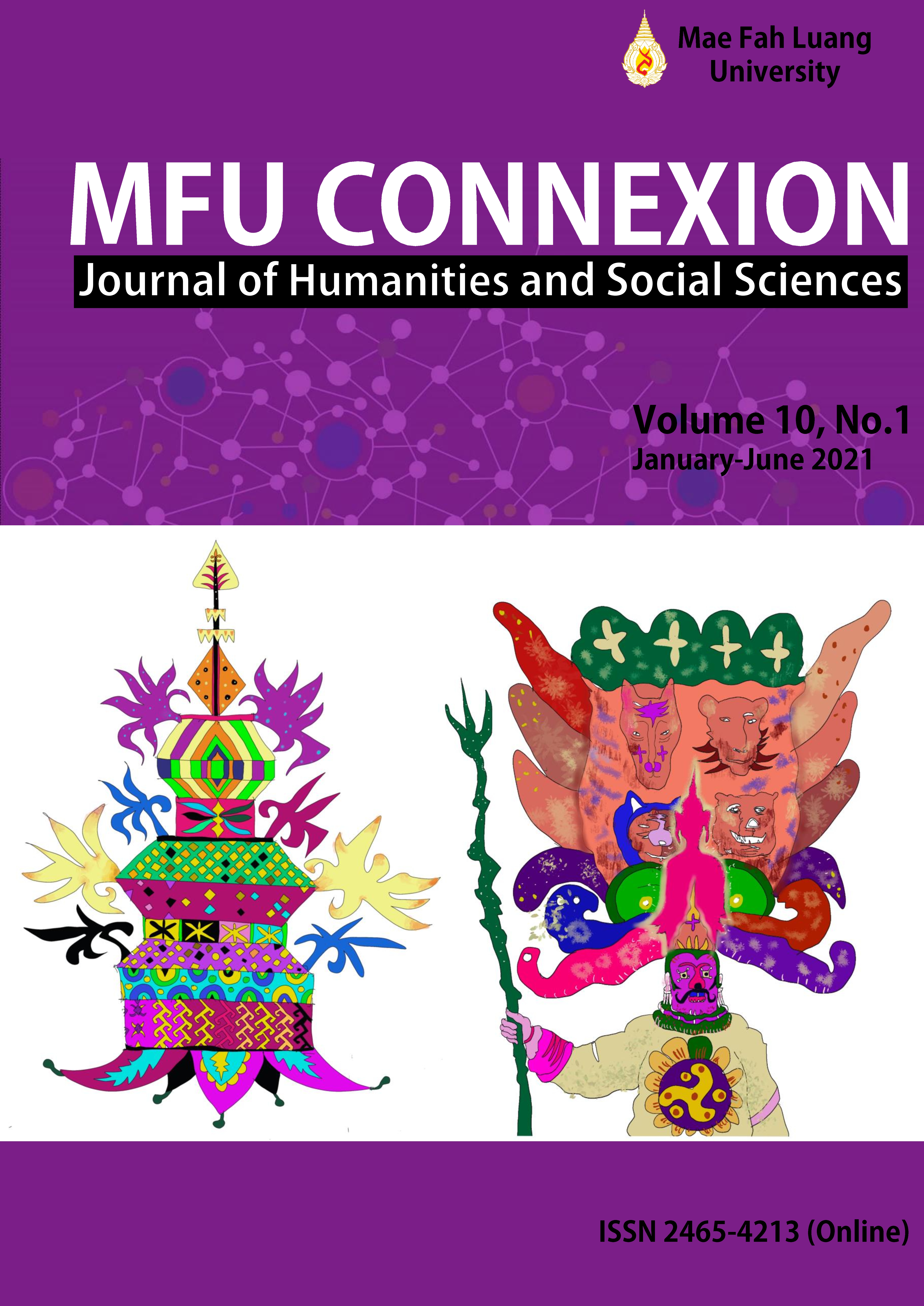A Three-Dimensional Model for the Development of an Ethical Landscape: A Case Study of the Ethical Environment in the Province of Chiang Rai
Main Article Content
Abstract
The issue of the development of an ethical landscape in Chiang Rai which forms the basis for this research is in line with the provincial policy to transform society as it now is into a more ethical society with a focus on the key values - discipline, sufficiency, honesty and empathy. The first objective was to study the ethical environment, the second was to analyze the data on ethical issues, and the third was to design an ethics model. This research methodologically uses statistical analysis after exploring news items and other data directly related to the four ethical values over the last three years. Then questionnaires were created for the following six sectors of society namely: private sector, public sector, educational sector, religious sector, media sector, and general social sector. Interviews with key informants were then carried out. The findings reveal both positive and negative aspects in three areas namely; the mental condition of individuals, societal behavior and effects from the environment. Data revealed a high suicide rate indicating a need for the development of self-esteem, an understanding of one’s true nature and the cultivation of mindfulness. Data revealed a high rate of road accidents, drug abuse, and the smuggling of goods over the border indicating the need to build trust and cooperation within communities. As for natural disasters a lack of environmental respect still persists; and the evolution from agricultural to non-rural societies has brought about the weakening of social ties and is having a negative effect on the new generation growing up in a fragile ecosystem and without a foundation in ethical values. The development of a strong ethical approach in all of the three main areas mentioned above is therefore imperative in order to build the foundations for a better society in Chiang Rai.
Article Details
Copyright
Connexion: Journal of Humanities and Social Sciences has an exclusive right to publish the accepted articles in any form. However, the author retains the following rights:
1. The right to the ownership of the article;
2. The right to use all or part of the article in his/her other works;
3. The right to re-produce the article for personal use or for use in the author’s organisation, in which case the author must obtain permission from Connexion: Journal of Humanities and Social Sciences;
4. The right to make copies of all or part of the work for educational use or for the author’s use in classroom teaching; and
5. The right to include the work (both the preprinted and printed versions) in an institutional repository.
References
Ariya, S., Wetcha, P., Yawirach, P., Ouppinjai, S., & Rattanachoowong, P. (2019) Moral and ethics development for demonstration school student of Chiang Rai Rajabhat University (การพัฒนาคุณธรรมจริยธรรมนักเรียนโรงเรียนสาธิต มหาวิทยาลัยราชภัฏเชียงราย), Journal of Social Academic, vol. 12, no. 3, pp. 419-426. (in Thai)
Kemmanee, T. (2003) Development of morality, ethics and values from theory to practice (การพัฒนาคุณธรรม จริยธรรม และค่านิยม: จากทฤษฎีสู่การปฏิบัติ), Bangkok: Meteetips. (in Thai)
Marx, K. (1992) Capital: A critique of political economy, vol. 3, (David Fernbach, trans.), London: Penguin Books.
Moseley, F. (n.d.) The determination of constant capital and variable capital, Available: https://www.mtholyoke.edu/~fmoseley/working%20papers/CH3.pdf [25 May 2021]
Na Nakhon, P. (2013) Philosophy and key concept of ethics (ปรัชญาและแนวคิดหลักเกี่ยวกับจริยธรรม), Bangkok: Office of the Civil Service Commission. (in Thai)
Office of the Permanent Secretary for Education. (2017) The study of ethical morality of students in schools under the ministry of education (การศึกษาคุณธรรมจริยธรรมของนักเรียนในโรงเรียนภายใต้การศึกษาของการะทรวงศึกษาธิการ), Bangkok: Bureau of Policy and Strategy, Ministry of Education. (in Thai)
Ophap, S. (2017) Desirable morality in Chiang Rai province to a moral society (คุณธรรมจริยธรรมที่พึงประสงค์ของจังหวัดเชียงราย สู่สังคมคุณธรรม), Bangkok: Ministry of Culture. (in Thai)
The New Shorter Oxford English Dictionary on Historical Principles, 4th edition. (1993) L. Brown (editor), Oxford: Clarendon Press.


